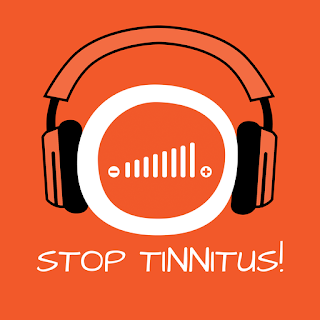Overview.
Tinnitus is usually described as a ringing in the ears, but it can also sound like clicking, hissing, roaring, or buzzing. Tinnitus involves perceiving sound when no external noise is present. The sound can be very soft or very loud, and high-pitched or low-pitched. Some people hear it in one ear and others hear it in both. People with severe tinnitus may have problems hearing, working, or sleeping.
Tinnitus is not a disease — it’s a symptom. It’s a sign that something is wrong with your auditory system, which includes your ear, the auditory nerve that connects the inner ear to the brain, and the parts of the brain that process sound. There are a variety of different conditions that can cause tinnitus. One of the most common is noise-induced hearing loss.
There is no cure for tinnitus. However, it can be temporary or persistant, mild or severe, gradual or instant. The goal of treatment is to help you manage your perception of the sound in your head. There are many treatments available that can help reduce the perceived intensity of tinnitus, as well as its omnipresence. Tinnitus remedies may not be able to stop the perceived sound, but they can improve your quality of life.
Tinnitus remedies
1. Hearing aids
Most people develop tinnitus as a symptom of hearing loss. When you lose hearing, your brain undergoes changes in the way it processes sound frequencies. A hearing aid is a small electronic device that uses a microphone, amplifier, and speaker to increase the volume of external noises. This can mollify neuroplastic changes in the brain’s ability to process sound.
If you have tinnitus, you may find that the better you hear, the less you notice your tinnitus. A 2007 survey of healthcare providers published in The Hearing Review, found that roughly 60 percent of people with tinnitus experienced at least some relief from a hearing aid. Roughly 22 percent found significant relief.
2. Sound-masking devices
Sound-masking devices provide a pleasant or benign external noise that partially drowns out the internal sound of tinnitus. The traditional sound-masking device is a tabletop sound machine, but there are also small electronic devices that fit in the ear. These devices can play white noise, pink noise, nature noises, music, or other ambient sounds. Most people prefer a level of external sound that is just slightly louder than their tinnitus, but others prefer a masking sound that completely drowns out the ringing.
Some people use commercial sound machines designed to help people relax or fall asleep. You can also use headphones, television, music, or even a fan.
A 2017 study in the journal Frontiers in Aging Neuroscience found that masking was most effective when using broadband noise, such as white noise or pink noise. Nature sounds proved much less effective.
3. Modified or customized sound machines
Standard masking devices help to mask the sound of tinnitus while you are using them, but they have no long-lasting effects. Modern medical-grade devices use customized sounds tailored specifically to your tinnitus. Unlike regular sound machines, these devices are only worn intermittently. You may experience benefits long after the device is turned off, and over time, you may experience long-term improvement in the perceived loudness of your tinnitus.
4. Behavioral therapy
Tinnitus is associated with a high level of emotional stress. Depression, anxiety, and insomnia are not uncommon in people with tinnitus. Cognitive behavioral therapy (CBT) is a type of talk therapy that helps people with tinnitus learn to live with their condition. Rather than reducing the sound itself, CBT teaches you how to accept it. The goal is to improve your quality of life and prevent tinnitus from driving you crazy.
CBT involves working with a therapist or counselor, typically once per week, to identify and change negative thought patterns. CBT was initially developed as a treatment for depression and other psychological problems, but it seems to work well for people with tinnitus. Several studies and meta-reviews, including one published in the Korean Journal of Audiology, have found that CBT significantly improves irritation and annoyance that often comes with tinnitus.
5. Progressive tinnitus management
Progressive tinnitus management (PTM) is a therapeutic treatment program offered by the U.S. Department of Veterans Affairs. Tinnitus is one of the most common disabilities seen in veterans of the armed services. The loud noises of war (and training) often lead to noise-induced hearing loss.
6. Antidepressants and antianxiety drugs
Tinnitus treatment often involves a combination of approaches. Your doctor may recommend medication as part of your treatment. These drugs may help make your tinnitus symptoms less annoying, thereby improving your quality of life. Antianxiety drugs are also an effective treatment for insomnia.
A study published in Medical Science Monitor found that an antianxiety drug called alprazolam (Xanax) provides some relief for tinnitus sufferers.
- clomipramine (Anafranil)
- desipramine (Norpramin)
- imipramine (Tofranil)
- nortriptyline (Pamelor)
- protriptyline (Vivactil)
7. Treating dysfunctions and obstructions
According to the American Tinnitus Association, most cases of tinnitus are caused by hearing loss. Occasionally though, tinnitus is caused by an irritation to the auditory system. Tinnitus can sometimes be a symptom of a problem with the temporomandibular joint (TMJ). If your tinnitus is caused by TMJ, then a dental procedure or realignment of your bite may alleviate the problem.
Tinnitus can also be a sign of excess earwax. Removal of an earwax blockage may be enough to make mild cases of tinnitus disappear. Foreign objects lodged against the eardrum can also cause tinnitus. An ear, nose, and throat (ENT) specialist can perform an exam to check for obstructions in the ear canal.
8. Exercise
Exercise contributes significantly to your overall well-being. Tinnitus can be aggravated by stress, depression, anxiety, lack of sleep, and illness. Regular exercise will help you manage stress, sleep better, and stay healthier.
9. Mindfulness-based stress reduction
During an eight-week course of mindfulness-based stress reduction (MBSR), participants develop the skills to control their attention through mindfulness training. Traditionally, the program was designed to draw people’s attention away from their chronic pain, but it can be equally effective for tinnitus.
The similarities between chronic pain and tinnitus have led researchers to develop a mindfulness-based tinnitus stress reduction (MBTSR) program. The results of a pilot study, which were published in The Hearing Journal, found that participants of an eight-week MBTSR program experienced significantly altered perceptions of their tinnitus. This included a reduction in depression and anxiety.
10. DIY mindfulness meditation
You don’t need to enroll in an eight-week program to get started with mindfulness training. Participants in the MBTSR program all received a copy of the groundbreaking book “Full Catastrophe Living” by Jon Kabat-Zinn. Kabat-Zinn’s book is the premier manual for practicing mindfulness in daily life. You will learn about, and be encouraged to practice, meditation and breathing techniques that can help draw your focus away from tinnitus.
11. Alternative treatments
There are several alternative or complementary tinnitus treatment options, including:
- nutritional supplements
- homeopathic remedies
- acupuncture
- hypnosis
None of these treatment options are supported by science. Many people are convinced that the herb gingko biloba is helpful, however large-scale studies have been unable to prove this. There are many nutritional supplements claiming to be tinnitus remedies. These are usually a combination of herbs and vitamins, often including zinc, ginkgo, and vitamin B-12.
These dietary supplements have not been evaluated by the U.S. Food and Drug Administration (FDA) and are not supported by scientific research. However, anecdotal reports suggest that they may help some people.
When to see your doctor
Tinnitus is rarely a sign of a serious medical condition. Talk to your primary care doctor if you are unable to sleep, work, or hear normally. Your doctor will probably examine your ears and then provide you with a referral to an audiologist and otolaryngologist.
However, if you are experiencing facial paralysis, sudden hearing loss, foul-smelling drainage, or a pulsating sound in sync with your heartbeat, you should go to your local emergency department.
Tinnitus can be extremely distressing for some people. If you or someone you love is thinking about suicide, you should go to the emergency room right away.









